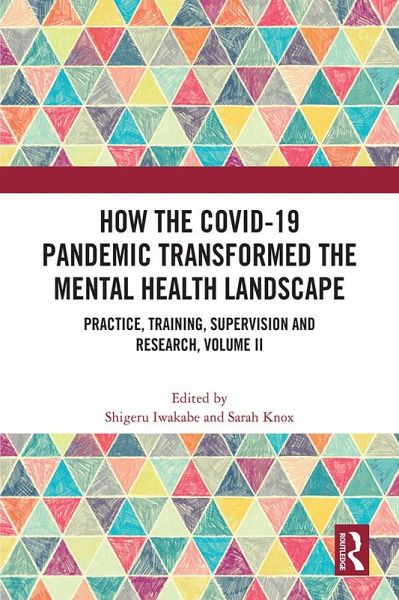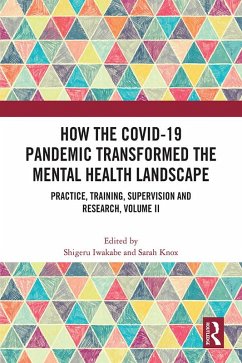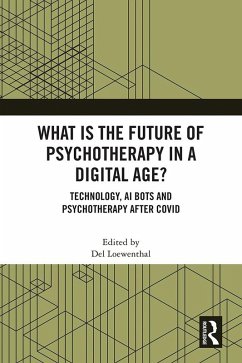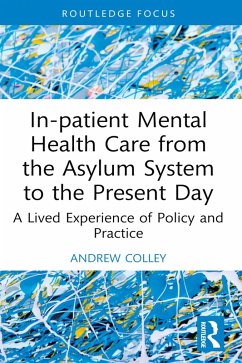
How the COVID-19 Pandemic Transformed the Mental Health Landscape (eBook, PDF)
Practice, Training, Supervision and Research, Volume II
Redaktion: Iwakabe, Shigeru; Knox, Sarah
Versandkostenfrei!
Sofort per Download lieferbar
38,95 €
inkl. MwSt.
Weitere Ausgaben:

PAYBACK Punkte
19 °P sammeln!
This book is a valuable historical record of how counselling psychologists responded to the COVID-19 pandemic around the globe. Volume II presents 17 chapters that address four major topic areas. In the first, the chapters focus on training and supervision: during the pandemic, most on-site training and supervision had to be discontinued to prevent spread of the virus. However, many trainers and training programs found creative ways to continue to provide training opportunities to their trainees. The second focus is on the populations who may require specialty care during times of such upheava...
This book is a valuable historical record of how counselling psychologists responded to the COVID-19 pandemic around the globe. Volume II presents 17 chapters that address four major topic areas. In the first, the chapters focus on training and supervision: during the pandemic, most on-site training and supervision had to be discontinued to prevent spread of the virus. However, many trainers and training programs found creative ways to continue to provide training opportunities to their trainees. The second focus is on the populations who may require specialty care during times of such upheaval, such as those with psychosis and serious mental illness. In the third part, the chapters speak to the pandemic across cultures, as well as its effects on clients from underrepresented groups. Finally, three chapters present research perspectives on the pandemic.
Written by prominent researchers and clinicians in the field of counselling and psychotherapy, both the volumes together cover a wide range of perspectives and offer useful clinical recommendations related to effective telepsychotherapy practice. The chapters in these volumes were originally published as a special issue of Counselling Psychology Quarterly.
Written by prominent researchers and clinicians in the field of counselling and psychotherapy, both the volumes together cover a wide range of perspectives and offer useful clinical recommendations related to effective telepsychotherapy practice. The chapters in these volumes were originally published as a special issue of Counselling Psychology Quarterly.
Dieser Download kann aus rechtlichen Gründen nur mit Rechnungsadresse in A, B, BG, CY, CZ, D, DK, EW, E, FIN, F, GR, HR, H, IRL, I, LT, L, LR, M, NL, PL, P, R, S, SLO, SK ausgeliefert werden.













